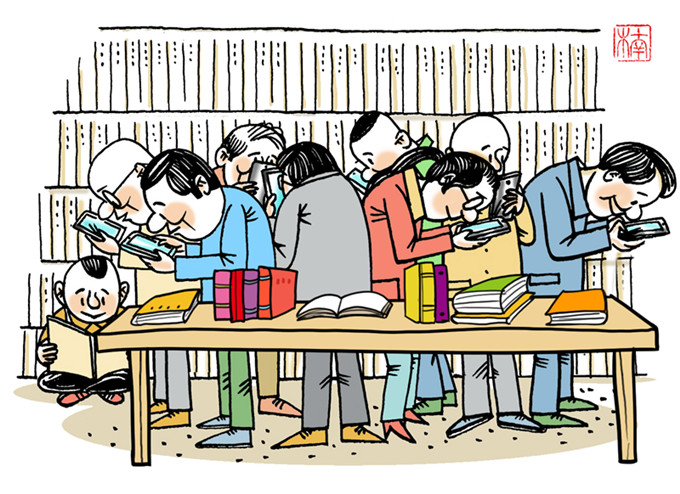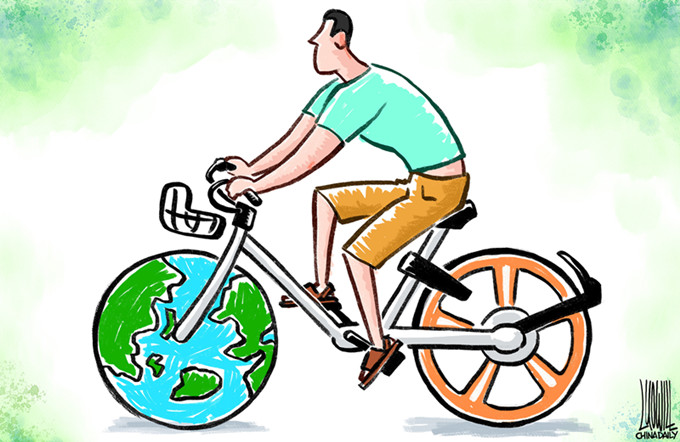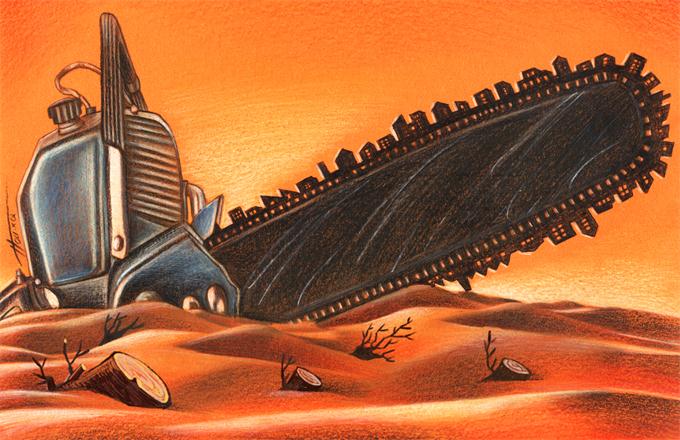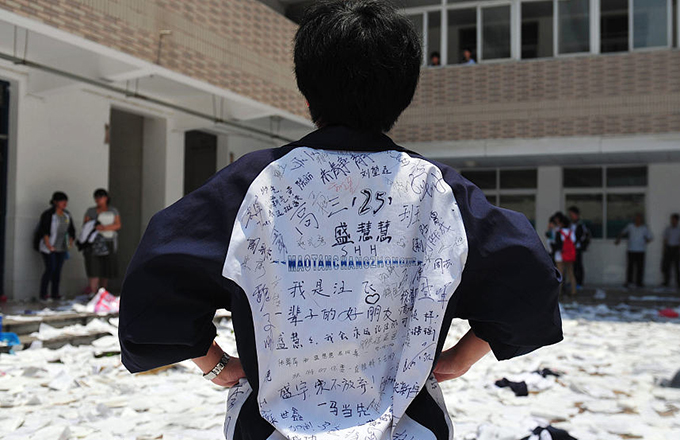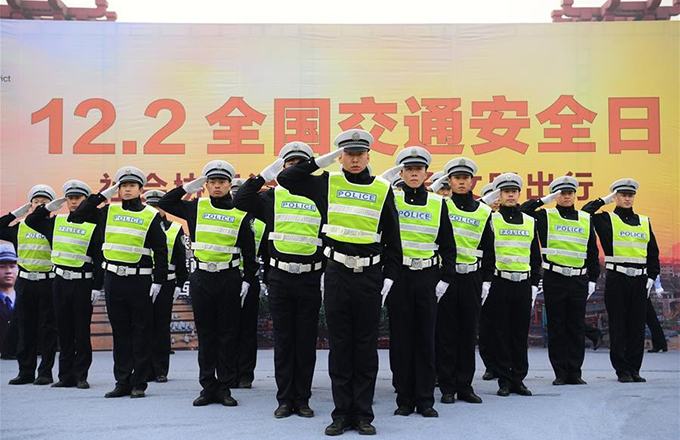China, the current superpower in the Arab eyes: a threat or a friend of goodwill and mutual gains
I have been in China for more than two years by so far and I am closely observing the latest developments regarding China’s foreign policy especially what concerns Sino-Arab relations and perception in the last few years until now.
Contrary to the general perception given about China in the western media as a “revisionist power” (Husenicova, 2012) and a threat, Arabs have different perceptions about China. In fact, despite the negative comments about China after the 2011 Arab spring due to its position from the revolutions specially that of Syria, yet the general perception remains positive in the Arab society. The continuous visits of top level Chinese officials to the region, the warm reception given to them, and the strategic and comprehensive partnerships that have been established recently with the Arab world testify to that fact.
To Arabs, China does not seek regional domination. They see China as a believer in a multipolar world which is increasingly shaped by interdependent forces and multilateral institutions. It is their belief that China seeks to establish lasting conditions of common security for all countries, rather than to promote its security at the expense of other's.
I would safely say that China’s profile in the Arab region has grown remarkably in a positive way as it offers tangible benefits. Arabs have witnessed massive Chinese developmental and economic projects in addition the “made in China” goods. For example, China constructed railways and bridges in Egypt, hospitals, highways and roads projects in Yemen, Sudan, Algeria, the Arab Gulf states and in most of the Arab states.
China even constructed the third largest mosque in the world which in Algeria. Through my close monitoring and analyzing and as an Arab observer and academic researcher, people there, with too much resentment, always link the perception about the USA in the region to wars and fragmentation of the Arab societies. It can be said that the Arab world (through its people) appear to be tired of the destructive regional hegemony of the USA and are looking at China as a historical friend and replacement.
In recent years, in all statements and speeches by Chinese officials regarding the Arab region, they always show good will history and mutual gains are always highlighted as stated clearly by the Chinese president Xi in his speech in the Arab league last year, and before him the Chinese foreign minister, in an exclusive interview conducted by Aljazeera (Arabic Channel) in January 13th 2014. The minister emphasized that “Sino-Arab friendship rooted back in the depths of history” and he added “We seek to further develop and strengthen the traditional friendship between China and Arab countries”. and on his personal impression, he said “through my visit in the region, I personally was touched by the good feelings in Arab countries and by the Arab peoples towards China and the Chinese people. China is working to strengthen cooperation with countries in the region to achieve mutual benefit and win for each” (Chinese embassy to Tunisia, 2014).
Moreover, through my observation in the history of the top-level visits of officials from of the Western states and from China, I cannot find such warm impressions and statements reciprocally exchanged between the two sides in comparison to that of other officials or leaders specially from the western powers, and that is simply because what in reality is different whether historically or at the present.
I believe what made it goes in the positive side is that those statements are always coupled with grand developmental and economical projects in the region , which in turn signifies the good intention and commitment of China to the Arab world. Perhaps, these evidences convince the Arab world (long-standing US allies) to reorient their strategic relationship away from the US towards China and based on the facts on ground, it is safe to say that the cart of this process already started and it is going forwards.
Commenting on president Xi’s 2014 visit, Nabil Arabi, the then Arab League Secretary-General, (is no longer now) is reported to have said that Arabs and China have "a perfect relationship” (Xinhua,2016). He posits that China is the only superpower which has always supported the Arab (including Palestinian) rights. He heavily praised on the One Belt One Road Initiative proposed by the Chinese President and pointed out that China was connected to the Arab world by the historical Silk Road in the ancient time, and now China is renewing the connectivity through modern means by providing a lot of tenders and donations to the Arab states on the technological and technical aspects. However, he called for more cooperation in the fields of science, culture, education, health, and media, though both sides have signed several memoranda of understanding and agreements. Arabi noted the importance of the role played by the Arab - China cooperation forum in enhancing the relations between the two sides, stressing that it "succeeded tremendously” and contributed to the increasing of trade exchange between the two sides into “the very high level."
With regard that China could play a role in solving the crises and issues of the Middle East, Arabi stressed that China can play a pivotal and important role in the issues and crises in the Middle East, he stated that “the most important thing that distinguishes
China from other powers in this regard is that “its role is impeccably just and unbiased” (ibid), especially, with the Palestinian and the general Arab security issues. It works with a fraternal and friendly intention and has no special interests and influence to achieve”. He added that China doesn’t take party’s side against the other, but always seeks the public interest and it is the only UN Security Council member state that deals positively with the region. Moreover, he pointed out that the crises in the region is witnessing negative foreign intervention to support one party over another which will be increasing and worsening the problems.
Furthermore, majority of the Arab world believe that China is a good friend with mutual interests, they point out the willingness of China to offer development funding and financial investments opportunities in return for preferential access to regional energy reserves without human rights or political reform demands. China’s extensive relationship with countries like Sudan, Saudi Arabia and Egypt is a solid witness despite that almost all Arab countries are always accused by the Westerns powers of violating human rights and being away from the political reform, yet China put all these aside and established strategic and comprehensive relationships and partnership with Arabs taking into its account the priority of mutual benefits under whatever regimes.
In summary, the role of China as an active and constructive player in the Arab region, especially in the economic sense, is perceived positively and far from being a threat. Arabs also welcome the emerging China as a potential force that could counterbalance the US and Western hegemony and could globally influence. Besides that, with regard to the second part of the title of the study which is about whether China is a friend of good will and mutual gains, Arabs believe that China is a friend with good wills
and mutual gains. This is based on the president Xi’s speech and his foreign minister’s statements, in addition to the actual and physical presence of China economically in the lives of all Arabs and the positive reactions it receives.
In fact, based on the threat theory, the level of threat a partner poses is affected by geographic proximity, offensive power and aggressive intentions. In this regard, China and the Arab world are not worried about these negative tendencies despite the fact that China is a superpower with greater military and deterrence posture. On the contrary officials in both sides always keeps showing good intentions towards each other in all meetings and statements and even positions, beside as I previously mentioned that the kind of relations between the two sides is mostly economy and trade oriented in which both are getting benefits i.e. win-win relation. The two sides never have any historical clashes and China was never a colonial power in the Arab world since the ancient time.
Stephen Walt states that “the provision of economic or military assistance can create effective allies, because it communicates favorable intentions, because it evokes a sense of gratitude, or because the recipient becomes dependent on the donor. Stated simply, the hypothesis is: the more aid, the tighter the resulting alliance. Regardless of the context, the argument is the same: the provision of military or economic assistance is believed to give suppliers significant leverage over recipients” (Walt, 1987).
In the case of China and the Arab world, friendship based on mutual respect and benefits is observed; there have been so many economic and technical cooperation agreements in the 21st century that provided Arab states with many million-dollar economic grants and loans (specially, to the less developed Arab states). In addition,
China participated remarkably in the evacuation works during the Arab revolutions which gave it a positive image.
Furthermore, there have been supply of electronic equipment as well as establishment of many joint ventures projects. An example is the One Belt One Road initiative and the January 2016 visit of the Chinese president to the region which was accompanied with signing many economic projects and comprehensive partnerships are solid proofs that raised the image of China in the Arab region.
References
1. Husenicová L. (2012), The China Threat Theory Revisited: Chinese Changing Society and Future Development, In: Majer, M. – Ondrejcsák, R. – Tarasovič, V. (eds.): Panorama of global security environment 2012. Bratislava: CENAA, pp. 553-565.
2. Interview with the Chinese Foreign Minister, Aljazeera Arabic, 03/01/ 2014.
It is also available on YouTube https://www.youtube.com/watch?v=SJEtZw9SW80 (accessed on 03/04/2017).
3. Interview in Arabic with Nabil Arabi was conducted by Xinhua, Xinhua, 19/01/2016. http://arabic.news.cn/2016-01/19/c_135021392_2.htm (accessed on 07/04/2017).
4. Stephen M. Walt (1987), The origins of alliance. Cornell University Press, pp.22-26







